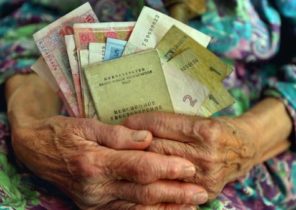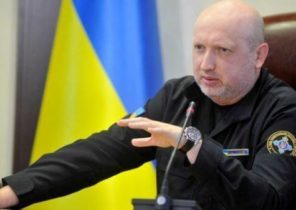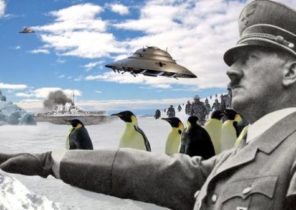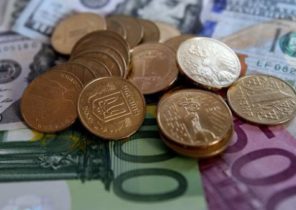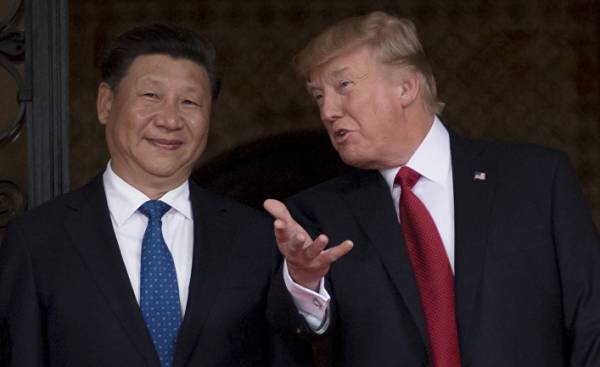
This was one of the main gaps of the French presidential campaign. Although in the debates and speeches in detail the addressed issues in Europe, Russia and Syria, the Asia-Pacific region hardly mentioned. Anyway, this does not negate the key role and importance of China, which can replace the United States as a first world power with 2030.
Its Central position concerns not only the economy but also geopolitics: the new surge of tension surrounding North Korea and nuclear ambitions of Pyongyang say that the new serious conflict between Beijing and Washington cannot be ruled out.
Open opportunities and dynamism on the one hand, the danger of war on the other — contains all the ingredients to attract the attention of the world. But, oddly enough, France, one of the five permanent members of the security Council, apparently, has forgotten that it is there territory and interests (including New Caledonia)…
Understanding the First world
This lack of interest in Asia is strange, because the significance of the region is growing, as evidenced by the latest work of the journalist of The Financial Times Gideon Rachman (Gideon Rachman, “the Onset of the East: the rise of Asia and the decline of America, from Obama to trump and more” — Easternization: Asia’s Rise and America’s Decline, From Obama to Trump and Beyond): “In the XXI century the rivalry of the Asia-Pacific region will shape the global policy is exactly the same as the struggle of the European Nations defined the international situation during the five centuries since 1500”.
Historian and Professor at the Paris Institute of political studies of Grosse Pierre (Pierre Grosser) might argue with the second part of that statement, however he has seen the same conviction: the history of the world is happening in Asia. And this happens for quite some time, since 1905, he argues in the book “history of the world is happening in Asia. Another look at the twentieth century”, emphasizing the “unknown aspect of the history of international relations.”
For example, it allows you to better understand the history of the First world war: “the Events in Asia for the past ten years before the war played a significant role.” There was sharp struggle, has formed a coalition and were put on the head strategy. In 1905 Japan inflicted a heavy defeat on Russia, thereby winning the first non-European nation over European. The most important turning point. “If you look from aside, a key factor in international relations from 1904 to 1914, was not even strengthening of Germany, and the crisis of the Russian Empire after the Russo-Japanese war, with subsequent reduction and friction with Austria-Hungary in the Balkans that have caused alarm in Germany,” — says the author.
The Russo-Japanese war determined the appearance of a conflict of 1914. According to gross, she reiterated the importance of “aggressive and fast” operations. “The world marveled at the infantry marching to storm the barriers, although the victory of Japan has determined she’s not taking the height and the use of heavy artillery”. The French feared that the Germans will do exactly the same, and was struck by the “spirit” of Japanese soldiers. The British wondered whether to make them modern life is too soft. The Bulgarians refused from the Russian model of training and was passionate about the bayonet, “symbol “Japanese” energy and violent sacrifice.”
Pax asiatica
It is difficult to understand without Asia and the Second world war (“the War began in Asia” in 2015, the South Tertre in great collective work “1937-1947: the war of the world”), the cold war and its end. The year 1989 was a milestone in this process: it not only had the November fall of the Berlin wall, but five months earlier, the bloody suppression of the Chinese Communist regime of the democratic movement in Tiananmen square.
Meeting the father of perestroika and glasnost of Mikhail Gorbachev and the Creator of Chinese reforms Deng Xiaoping (it was designed to put an end to the quarrel between two “brotherly” countries) was held in Beijing a month before the army’s intervention in the heart of the Chinese capital in June 1989. Anyway, mixed results it gave. The Chinese students saw in the “hump” example: “58 Gorbachev, Deng Xiaoping — 85”.
For the Chinese leader it was a humiliation. And he decided to make political concessions is not necessary. “The collapse of Communist regimes and the Soviet Union had to show that only the Chinese Communist party has chosen the right path,” — emphasizes the author. The head of the USSR, in turn, was convinced that “only economic reforms are not enough and that we need political”. However — on the one hand the Amur, the error on the other.
“The far East, the continent of wars and mass bloodshed throughout the twentieth century, moved to pax asiaticа that lasts to this day”, says Pierre Grosse. Its a lengthy book (650 pages) is based on the many Asian professionals and offers a different point of view on international relations. “Today we need to know the history of China’s relations with Japan and India, the territorial disputes in Asia and the origins of the Korean question, to understand the Asia of the XXI century and to predict our future, which depends on what is happening in the far East”. Although the book is Pierre Grosse is devoted to the twentieth century, it has much to tell us about the XXI.

